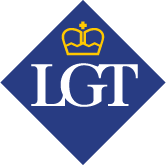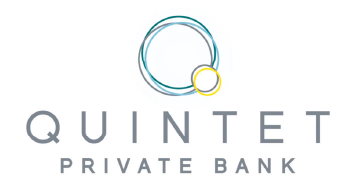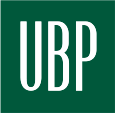Analysis of the latest industry trends, strategy updates of banks and wealth managers, and taking a close look at key people moves over the third quarter of 2020.

Multi-family office Alvarium Investments has officially launched an office in Italy. The newly opened branch is in Milan and will allow the firm access to families, foundations, and institutions across Italy. The firm now has a total of 14 offices across across Europe, the Americas and Asia Pacific, offering investment advice, co-investment partnerships, merchant banking advice and family office services. The firm advises on $18 billion of assets.

Azura, the wealth management firm focused on billionaire clients, has opened an office in Singapore, complementing the London and Monaco offices. The firm hired former UBS executive Trevor Lau to lead its first Asian office, who will manage an initial team of six other wealth management professionals and solution providers. The Singapore office is currently in the final stages of receiving a capital markets services licence for fund management from the Monetary Authority of Singapore.

Bank of Singapore has recently entered a partnership with Doha Bank to provide wealth management solutions in the Middle East. Through the partnership, Bank of Singapore will provide Doha Bank with wealth management solutions to be able to offer its clients wealth preservation, steady asset creation and tailored investment solutions.

Blackrock received approval to form a wealth management joint venture in China, after its application to China’s banking authority in July. The agreement will see Blackrock and Temasek, Singapore’s sovereign wealth fund, take a majority stake in the wealth management JV with China Construction Bank, one of China’s biggest banks. Although details have not yet been revealed, the wealth management company will likely be based in Shanghai with the aim to develop and offer onshore products to mainland China investors.
The above move follows the investment advisory licence that Blackrock’s wholly foreign-owned enterprise (WFOE) received from the Asset Management Association of China in 2019, which allows it to advise domestic fund management firms and distributors on specific investment products; and a previous private fund manager licence gained in 2018, allowing it to launch onshore funds to China’s qualified investors.

BNP Paribas’ Swiss arm posted a loss of more than CHF 124.6 million to June 2020, from a CHF 8.4 million profit the previous year, largely due to about CHF 140 million in credit write-downs. Revenue decreased by 28% to CHF 18.7 million, and spending was cut by 7%.
The bank is looking to cut roughly 250 of its total 1,400 jobs in Switzerland, in a restructuring effort that was announced last year but was paused at the start of Covid-19. The bank is reportedly considering the future of a Geneva centred unit for commodities trade finance (including whether to shut it down) as part of a wider review. BNP has pulled back from the commodities business since 2014, when it was hit by fines due to violation of US sanctions on Sudan, Cuba, and Iran.

BNY Mellon Investment Management has expanded its presence to Taiwan, after receiving a Securities Investment Consulting Enterprise (SICE) business license to open an office in Taipei. The license will allow BNY Mellon to strengthen its relationships with clients in Taiwan and increase brand awareness of the business by marketing on-the-ground to the local community. The focus continues to be on growing the institutional business in Taiwan. The firm has six other offices in Asia Pacific including Hong Kong, Singapore, Shanghai, Sydney, Tokyo, and Seoul.

UK-based wealth manager Charles Stanley is creating a third financial planning hub in Bath, South West UK, to complement its existing centres in London and Birmingham, as it looks to capitalise on the growth in revenues from advisory services. The Bath office is undergoing a recruitment drive to expand both the financial planning and investment management teams and build an additional hub which can complement its existing London and Birmingham branches. The firm plans to expand on the progress made to date to have Bath as a standalone financial planning hub in the future.

Citi announced a new five-year plan to further expand its foothold in sustainable financing after meeting its previous $100 billion target four years earlier than planned. The «2025 Sustainable Progress Strategy» includes a $250 billion financing target focused on climate change globally and focused on three key strategic areas: low-carbon financing, climate risk in its portfolios and sustainability in its operations.
The bank joined other major institutions to enter the Chinese financial sector and it has already received a domestic fun custody in China from the China Securities Regulatory Commission. This makes the bank the first foreign firm to obtain such approval in the mainland.
Citi has committed to improve youth employability in Asia, and as part of this commitment the bank will ramp up hiring and training opportunities for youth in Asia over the next three years. It has announced that it will hire 6,000 youth in Asia through 2023 in a bid to mitigate the impact of youth unemployment in the region, which is being worsened by the pandemic. Over the same time, the bank will also offer 60,000 job training opportunities at its retail and institutional businesses in the region to those under the age of 24. Asia's youth represent 20% of the total working-age population and the segment accounts for almost half of the Asia Pacific's jobless.

Credit Suisse has started with its Swiss savings plan to shut 35 Swiss branches and merge a subsidiary as part of a spending cut. The bank plans to reduce its branch network in Switzerland from 146 to 109, with as many as 500 jobs being cut, as part of a response to increased digitization by clients. The program's restructuring costs is expected to be around CHF 75 million over the coming year and cut spending by CHF 100 million by 2022, a large part of which is planned to be invested into relationship
manager hires as well as technology, digitization, and marketing.
As part of the Swiss reorganisation, Chief Executive Thomas Gottstein is introducing a new unit with «Direct Banking» and «Digitalization & Products» being merged into the new «Digital Banking» unit, helmed by Anke Bridge Haux. With this move, Credit Suisse embarks on to the next phase of its digital strategy with a leaner organisation, to ensure the rapid provision of innovative digital solutions for its clients. The unit will combine the flexibility and lower cost of a digital bank with the range of products and services offered by Credit Suisse's universal bank in Switzerland. «Direct Banking» will not become an independent direct bank anymore but will remain part of the company’s structure.
The bank has begun putting more emphasis on winning more cross-divisional business, driven by Thomas Gottstein’s push to reinforce Credit Suisse's four-year-old «bank for entrepreneurs». The bank plans to increase cross-selling of investment banking services to wealthy business-owners, alongside more traditional wealth management ideas, increasing the cooperation between private banking and investment banking. Across Investment Banking, Gottstein rolled back some of the changes brought in by previous chief executive Tidjane Thiam, and re-merged the group’s investment bank and capital markets units into a combined unit led by Brian Chin, in a bid to tighten controls and boost the performance. Risk and compliance units were also combined under the control of former Chief Risk Officer Lara Warner.
Wealth Management Executive Philipp Wehle is revamping its international wealth management unit, tightening its regional structure and centralising advisory and lending, to help profit growth. The unit is planning to create three new strategic groups, concentrating its lending activities within an International Financing Group under Yves-Alain Sommerhalder, as well as setting up a new investment banking advisory group led by Babak Dastmaltschi, and a unit focused on sustainability under Emma Crystal.
Furthermore, northern and southern Europe are being merged into one region, led by Robert Cielen, while the Middle East and Africa is being combined under Bruno Daher. In Brazil, Marcello Chilov will take over the wealth manager’s operations, aiming to increase collaboration between investment banking and the private bank, as well as optimising its onshore and offshore capabilities; while Emerging Europe, previously managed by Robert Cielen, will be led by Anton Cherny.
Credit Suisse has made clear the intention to accelerate its expansion in China. The bank is planning to double its headcount over the next five years, while also hoping to double revenue from the market especially from ultra-high net worth strategic clients. Credit Suisse’s China securities venture employed 154 individuals at 2019-end with products and services across financing, trading, wealth and asset management.

The private banking unit of DBS recently saw its business activity increase higher than pre-Covid, with net new money inflows surging by 170% in the first half of 2020 mainly driven by flows from Southeast Asia, Greater China, Europe and the United States. The unit is on course to register a 7-8% AuM growth this year, seeing strong development in southeast Asia (particularly Thailand), as well as benefitting from large European and US family offices setting up shop in Singapore to diversify to Asia.
The bank is yet another international bank that has registered with Chinese authorities to set up an onshore brokerage business. DBS received approval to establish a securities brokerage joint venture in China, which will provide brokerage, securities investment consulting, securities underwriting and sponsorship, and proprietary trading. DBS Securities (China) will be 51% owned by DBS Bank, 24.67% by Donghao Lansheng Investment Management, 13.33% by Shanghai Huangpu Investment Holdings, 6.5% by Shanghai Huiyang Asset Management, and 4.5% by Shanghai Huangpu Guidance Fund Equity Investment.

Deutsche Bank injected over $360 million to its business in India to expand corporate banking, investment banking, and international private banking operations. This is the second infusion in the business in less than 24 months, taking the total injected in India to over $2 billion. The bank reinforced the message that it has confidence in the potential of the country and its business model there and is looking to deepen the onshore presence. Deutsche Bank has been operating in India since 1980.

EFG recorded a 5.5% growth in net new assets in the first half of 2020, and registered total AuM of CHF 147.8 billion. Underlying net profit decreased year on year to CHF 37.7 million in the first half of 2020, compared with 75.5 million in the first half of 2019. However, it increased compared to CHF 33.1 million in the second half of 2019.
According to its latest half year media release, EFG accelerated its footprint rationalisation, focusing on investing in high-growth target markets, while reducing or exiting its presence in low-yielding, high-cost locations – targeting a 5% cost base reduction by end-2021. The bank increased its majority stake in Shaw and Partners to 61% and agreed to sell its operations in Chile and France (Oudart) as well as to exit and transfer its Guernsey business to other booking centres.
EFG is also disposing the Swiss retail business it came to own after the acquisition of Banca della Svizzera Italiana (BSI) in 2016. It is selling CHF 1.2 billion in client assets to cantonal bank Banca dello Stato del Cantone Ticino though has not disclosed financial details of the transaction.

Falcon is currently in the process of being dissolved after a failed four-year recovery and several reinvention efforts. According to the bank its wind-down is proceeding to plan; it recently sold a Luxembourg-based fund management arm to Swiss wealth manager Alpina Capital, while a Dubai-based unit that manages roughly $1 billion in funds among client assets is currently being eyed by potential buyers. For the remainder of its client assets, the bank is understood to be in talks with two potential acquirers.

Goldman Sachs reached a $3.9 billion settlement with the Malaysian government over the multi-billion dollar 1MDB scandal, including a $2.5 billion cash pay-out and a further guarantee to return at least $1.4 billion in proceeds from assets related to 1MDB seized by governmental authorities around the world. The settlement relates to the bank's role in the corruption scandal at 1Malaysia Development Berhad, the country's sovereign wealth fund, and the bond sales that Goldman Sachs arranged and underwrote for 1MDB. Malaysia is dropping all criminal and regulatory proceedings in the country involving the firm, including pending proceedings against subsidiaries of Goldman Sachs and certain current and former directors. It does not cover two former Goldman Sachs bankers Tim Leissner and Roger Ng and does not resolve the other pending governmental and regulatory investigations involving the firm relating to the scandal.

UK private bank Hampden & Co reported an increase of £44 million in its lending (over 20%) in the first half of the year, bringing the bank loan book to £248 million, an increase of 61% on the same time last year. Deposits were up 24% to £423 million, while half year revenue were up 17% to £4.8 million.
The bank recently launched a retirement interest-only product that allows clients to borrow up to £2 million, to help over 55s manage their inheritance tax liabilities without disturbing other assets or raise a lump sum to support family and boost lifestyle in retirement. Loan-to-values will typically be restricted to a maximum of 50% but there is no limit to mortgage term.

Following a pause in its plans to cut 35,000 jobs due to the pandemic, HSBC recently confirmed the job losses would now be implemented. The bank is executing on its transformation programme to reshape its underperforming businesses, simplify the organisation, and reduce costs. It already started the process with the recent merge of wholesale back office operations, as well as bringing together retail, wealth and private banking into single global business Wealth and Personal Banking.
The bank is in final talks to sell its French retail subsidiary HSBC France, which consists of around 270 branches and a staff of around 10,000. HSBC France has been operating since 2005 when HSBC acquired French bank CCF and has more than 850,000 clients, many of whom are expats. Other markets being considered for sale or closure are believed to include Turkey, Malta, Greece, Oman, and the United States.
Despite the planned redundancies, mainly in the US and Europe, HSBC is pushing ahead with its China expansion and has recently hired 100 digital wealth planners in mainland China, ahead of the launch of an app-based financial advice and insurance service for digital wealth management activities. Clients in Guangzhou and Shanghai will have access to the offering initially, prior to a country-wide roll out. The plan is to reach 2,000 - 3,000 wealth planners by 2024. This is on top of the bank’s plan to add 500 private banking and wealth management staff across Asia by 2022, announced earlier in the year.
HSBC’s private banking arm raised a record $1.6 billion of private client funding for alternative investments globally from January to the end of August 2020, across a broad range of product solutions including hedge funds, private equity, private

Chinese wealth manager Hywin Wealth Management is eyeing a Singapore presence, amid growing uncertainty in Hong Kong. The firm is looking at licenses in wealth management, asset management, succession advisory, insurance, and brokerage services to operate in Singapore. Upon receiving approvals, it will aim to hire 10 to 15 people to start with and attract $500 million of client assets in the first year. Hywin was founded in 1989 and currently employs over 5,000 employees housing 100 billion yuan ($14.3 billion) in assets under management. It is headquartered in Shanghai and has offices in mainland China, Hong Kong, London, and New York.

JP Morgan Private Bank is entering an agreement to refer its Brazilian onshore clients to local bank Bradesco and will therefore no longer be running the onshore investments of its existing Brazilian private banking clients. It will instead refer them to Bradesco who will service them through its own onshore product platform. It is understood that roughly $3.7 billion in client assets will be transferred to Bradesco. JP Morgan will continue to run its Brazilian clients’ offshore accounts, which is where most of the revenue and assets of JPM Private Bank’s Brazilian business comes from.
In China, the bank is increasing holdings in its China securities joint venture from 51% to 71%, making it the foreign bank that is closest to obtaining full ownership of a mainland Chinese firm.

Julius Baer reported record profit in the first half of 2020 fuelled by a surge in trading due to market volatility, with net profits of CHF 491 million (up 43% from 2019 numbers) and net margin of 31 bps (up from 23 bps in 2019). It registered CHF 5 billion in net new assets in the period, although assets under management fell by 6% to CHF 402 billion. The bank is currently working through a three-year plan introduced by chief executive Philipp Rickenbacher in a bid to increase margins.
A new unit is being created by Giuseppe De Filippo who joined the bank in October as Head of Private Investment Markets from UBS. The new division will focus on offering private equity and debt investments to ultra-wealthy clients. Giuseppe has joined with an initial team of three although it is understood that a further recruit drive will take place to expand the team.
Julius Baer has reinforced its growth plans for Thailand, where it operates through a joint venture with local financial giant Siam Commercial Bank. SCB-Julius Baer Securities received a license in April 2019 and has seen its AuM double since the beginning of 2020, while it also doubled the number of relationship managers over the period. It intends to continue to invest in the country and become a top 20 private bank in Thailand by AuM.
The bank has been evaluating a possible wealth management push into the US, as it seeks partnerships or acquisitions in its core Latin American markets, driven by Head of Americas Beatriz Sanchez. Julius Baer has closed or sold four offices in the Americas since 2019, but it is growing in Brazil, Mexico, Chile and Colombia, where it is considering acquisitions, strategic alliances and joint ventures. New York and Miami would be the most logical US bases to service Latin American clients.
Chief Executive Philipp Rickenbacher is driving an overhaul in bonuses pay-outs in the bank across Switzerland, EMEA and Asia, seeking to severing a correlation between pay and past failures in fighting money laundering. A new scheme is replacing two separate bonus plans including one where advisers were rewarded heavily based on hauling in fresh assets. From 2021, Julius Baer will also link profitability more closely to bonuses.

Franco-German banking group Oddo BHF and Swiss private bank Landolt & Cie are set to merge their businesses with a share-swap deal, though which clients of both institutions in Switzerland will receive access to the services commonly available. Pierre Landolt and Thierry Lombard, the main shareholders of Landolt & Cie, will become shareholders of Oddo BHF. Landolt & Cie was founded in 1780 and currently has about CHF 3 billion in AuM with 70 people (with 75% of clients based in Switzerland); while Oddo BHF opened its asset and wealth management services to clients in Switzerland in 2016. The deal is pending regulatory approval.

Lombard Odier and the University of Oxford announced the launch of a sustainable investment partnership focused on climate change, circular economy, and nature. The partnership aims to provide a unique platform for knowledge exchange between scholarship and financial services and support sustainable finance in becoming a major field of academic research globally. Together, they have created the first endowed senior academic post in sustainable finance at any major global research university. Lombard Odier investment professionals will benefit from ongoing training by Oxford which, in turn, will have access to the bank’s research and product innovation.

LGT Group grew its operating income by 6% in the first half of 2020 to CHF 900 million, following the success of strict cost-cutting measures adapted by the group. Group profit increased 23% to CHF 190.7 million compared to the year before. Group AuM stood at CHF 218.7 billion at June-end, down from CHF 227.9 billion the same period in 2019. The group is preparing for a new organizational structure coming into force in 2021, when the group's three business units – LGT Private Banking,
LGT Capital Partners and Lightstone – will start to operate as independent companies.
The group has now fully acquired UK wealth manager LGT Vestra, after buying the remaining equity held by the executive partners in the firm. It follows a 2016 deal when the group acquired a majority stake in the firm. LGT Vestra manages more than £15 billion of assets through its London, Bristol and Jersey offices.

M&G is creating a new wealth management division, called “M&G Wealth Management”. The new unit will combine Ascentric, the platform business it acquired earlier in September from Royal London, along with its direct funds arm and two financial advice units, Prudential Financial Planning and The Advice Partnership (TAP). The new unit will have combined assets under management and administration of £28 billion.

Leicester-based Mattioli Woods completed the acquisition of Hurley Partners, a private client adviser and asset management firm, which added about £570 million in client assets. The deal is made up of £10.7 million in cash and £5.9 million worth of new ordinary shares in Mattioli Woods which cannot be sold for two years. A further £8 million will be payable in cash two years after completion if Hurley meets and outperforms earnings targets. Mattioli Woods is responsible for more than £9 billion in client assets.

National Australia Bank is looking to expand its wealth management workforce focused on HNW & UHNW Australian individuals by hiring at least 50 bankers and financial advisers to its business specialising in debt and investing needs, under the lead of recently appointed Head of Private Wealth Justin Greiner. This follows the creation of a new division (NAB Private Wealth) comprising wealth manager JBWere, acquired by the bank in 2009, and the lending focused NAB Private bank and technology platform Nabtrade. On the other hand, the bank is retreating from the retail wealth industry with the pending sale of its MLC financial planning and superannuation arm.

Natwest announced that it is bringing all its wealth management businesses under the single leadership of Coutts Chief Executive Peter Flavel, who has transitioned to a new leadership role as Chief Executive Officer of Natwest Group. Under his remit, the lender will bring together Coutts, Adam & Company, Holt’s, Drummonds, PCAIS and now Premier Banking and Premier 24. This is part of an effort to combine the collective expertise and resources of the Premier Banking and Private Banking teams to bring a more targeted focus on the wider Natwest Group’s affluent customer-base, and be able to help customers through each stage of their lifetime.

Pictet announced plans to return to the US with its flagship asset management arm and has opened an office in New York. Elizabeth Dillon, former London-based Head of Sales for US Sub-Advisory and Intermediaries, has relocated to New York and is the new Chief Executive of Pictet Asset Management (USA). The bank has already recruited three other executives in the US, Mike Acker from Axa Investment Managers, Nick Mavro from Fiera Capital, and Jorge Corro from Nortesur; and is looking to expand the team to 12 people.

Quintet, the Luxembourg-based private bank owned by Qatar’s Al-Thani royal family, has announced it is on track with its restructuring and growth plans. The bank’s expansion has been speeding this year with the owners’ full support. More than 50 relationship managers were hired to the second/third quarter of 2020, taking the total to more than 350. According to Chief Executive Jakob Stott the plan is to hire a further 50 relationship managers by year-end. As well as focusing on business with wealthy individuals in Europe, the bank is looking into other higher-growth markets including Asia, Latin America, and the Middle East, where it has today no “significant” business. The bank plans to break even by the end of 2022 or in 2023.

UK asset manager Schroders has agreed to buy Sandaire, a £2.2 billion London-based family office, to accelerate its wealth management push. Sandaire will be integrated into Cazenove Capital, a UK adviser to wealthy families and endowments which was acquired by Schroders in 2013 and is responsible for £35.6 billion of client assets. Alex Scott, the founder of Sandaire which currently looks after 20 wealthy family groups, will become Chairman of Schroders family office services. Sandaire was originally established over 20 years ago to manage the fortune of the Scott family following the sale of Provincial Insurance, a private-owned property and accident insurance business founded in 1903.

Standard Chartered has announced a reorganisation of its business to concentrate on affluent customers and link up its Asian network. Retail banking, private banking and wealth management are being merged into a consumer, private and business banking division effective 2021 and led by Judy Hsu, currently regional chief executive for ASEAN and South Asia.
The bank has begun to cut private banking jobs in Dubai and London, with 45 people made redundant to cut costs and improve returns. This follows a previous announcement that the bank would cut hundreds of jobs worldwide from its global total of 85,000 employees.
According to half year results, the bank’s private banking profits were down 44% from the same period in 2019, with Africa and Middle East recording the highest regional drop. The global private bank had $56 million in underlying profit before tax in the first half of the year, down from $100 million in 2019.

London-based wealth manager Tilney has announced the completion of its merger with Smith & Williamson. Although the Group has been renamed Tilney Smith & Williamson there will be no immediate changes to its existing client-facing brands: Tilney, Smith & Williamson and Bestinvest. The combined wealth management and professional services group is responsible for over £47 billion of assets under management, generating approximately £530 million of revenue.

Union Bancaire Privée started an exclusive cooperation in Asia with Quantcube Technology, a Paris-based big data start-up. UBP launched a long-only, active, systematic stock picking strategy powered by QuantCube’s big data analytics in Singapore. The strategy is registered as a restricted scheme in Singapore and is available to clients of UBP Singapore that are accredited investors.
Overall, UBP profits decreased 8% to CHF 108 million at the second half of 2020, although operating result rose by 20% to CHF 131 million, smoothed by a London real estate disposal and a spending cut of 3% compared to last year. Fresh new money counted for CHF 3.7 billion, though total assets under management stood at CHF 137.2 billion francs in the second half of 2020, compared to CHF 140.3 billion at 2019-end.

Ralph Hamers, who previously ran ING for seven years, joined UBS in September as designated CEO to replace Sergio Ermotti in November. Hamers is a strong supporter of digitization for business as well as organizational purposes and is expected to speed up UBS digitalisation process. Despite this, the private bank will continue to emphasise on the “high personal touch” of private bankers, as Co-Presidents of Global Wealth Management Iqbal Khan and Tom Naratil recently described.
The bank is planning a revamp of its wealth management unit under a new project to reduce expenses and free some resources, which the company would offer as loans in higher-growth markets. Reports indicated that the bank would transfer large customer deposits from its Swiss entity into the bank’s main UBS AG legal unit, to be able to lend $20 billion - $30 billion per year to wealthy clients outside Switzerland.
The global wealth management unit is making a shift in advising private clients to invest in sustainable assets over more traditional solutions. Iqbal Khan recently commented "we believe sustainable investments will prove to be one of the most exciting and durable opportunities for private clients in the years and decades ahead”. UBS believes that a 100% sustainable portfolio can deliver similar or potentially higher returns compared to traditional portfolios and offer strong diversification for clients invested globally.
Axel Weber has reportedly created a wish list of potential partners for a mega-merger, including Deutsche Bank, Credit Suisse, and BNP Paribas. An initial possible progress towards a UBS - Credit Suisse mega-merger received backing from both UBS chairman Axel Weber and Credit Suisse chairman Urs Rohner but talks stagnated since the summer months. According to reports, Deutsche Bank is currently Weber’s preferred choice.

Vontobel has officially opened an advisory office in Milan, focused on servicing high- and ultra-high-net worth clients, wealthy families, entrepreneurs, foundations, and family holding companies in Italy. Italy is one of the bank’s key European growth markets, and with the move Vontobel can now reach local Italian clients. The office is led by Lorenzo Palleroni, most recently a Managing Director and Sector Head at Credit Suisse in Milan.
The bank has recently appointed fintech specialist Toby Triebel as Head of Digital Investing, a recently set up client unit, in a push to expand the bank’s range of digital solutions for investors internationally. The unit is going live in October 2020 through which Vontobel will “delivers its global investment and product expertise directly or through partnerships and ecosystems to broader client groups, primarily using digital channels”.

Liechtenstein’s VP Bank has acquired the private banking business of Öhman Bank in Luxembourg from Swedish financial group Öhman. Through the deal, VP Bank is buying €760 million in client assets as well as an advisory team of 11 individuals. Most client assets are from Scandinavian entrepreneurs and investors. Clients will continue to be served from Luxembourg. The acquisition is in line with VP Bank’s expansion in the Nordic region and follows the acquisitions of the Luxembourg investment funds business of Sweden’s Carnegie group, and that of the Luxembourg private banking business of Swedish Catella Bank. The transaction is expected to complete by year-end and financial terms have not been disclosed.




